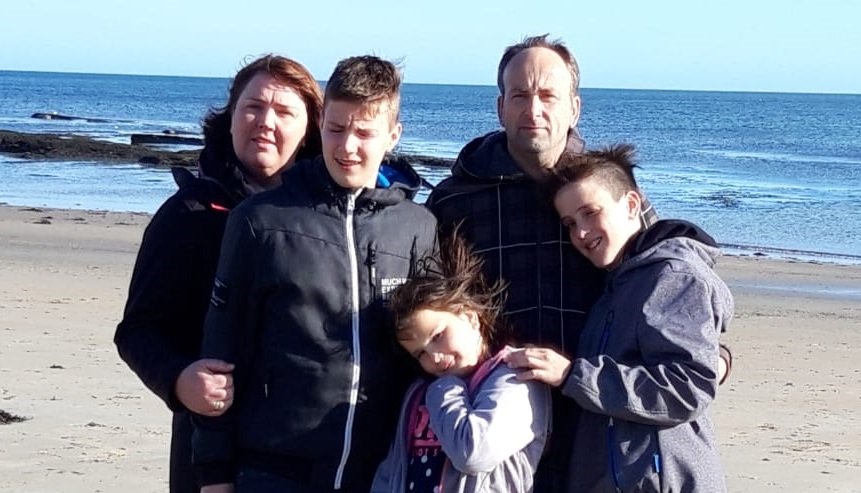Frans and Ingrid van Wilgen and their 3 children Rick, Bram and Merel are enjoying themselves in hilly Hasselbach. The family started in 2012 with 90 dairy cows in an old barn. Now, more than 150 dairy cows are being milked in the new dairy barn, which was completed in 2014.
"In the Netherlands, we had a dairy farm with 65 dairy cows and 40 ha of land in Vuren, Gelderland, on the border of South Holland, Brabant and Utrecht. An area with few development opportunities, especially after the area less than 200 meters from their company was designated a Natura 2000 area," says Frans.
Sufficient land available
Rheinland Pfalz appealed to them because of the good quality of the soil and the beautiful landscape. “There was also plenty of land available here, at a favorable price. And it still is. We started with 105 ha, now we cultivate approx. 220 ha. Of this, 60 ha is owned and the rest is leased (multi-year lease contracts: 10 years). In 2019, we will grow 33 ha of winter wheat, 21 ha of winter rye, 18 ha of summer (brewing) barley and 24 ha of maize on approximately 98 ha of arable land. We started with beans two years ago. We liked that very much, but due to this year's drought, the harvest was quite disappointing. But it fits very well with our feed policy, namely no genetically modified soy. Which gives a plus in the milk price.”
Priority in quality
Due to the generous ground position, Van Wilgen is well within the feed supply for the 150 dairy cows. For the time being, there are no growth ambitions in terms of livestock. “First, we want to improve the quality of our livestock even further. We do this through our own rearing – we have over 140 young stock. This capacity suits our company size.
Smooth progress of new dairy barn
In 2012, when we moved here, we immediately started the planning application for a new dairy barn and a trench and manure silo. We were allowed to start construction in July 2013, and in April 2014 we were able to start using the new barn. The barn has a 0+6+0 version with a 2x12 70 degree parlor, it stands on a hill outside the village where the previous owner had already built a new hall for feed and storage. After living in a rented house in the village of Hasselbach for the first few years, we have been living in our new house at our company location since 2016.
Favorable land price, more flexible rules
The great advantage of a spacious land position is that a good crop rotation is possible. A relatively large amount of grain is grown compared to maize. Good for the yield, the agricultural census and an advantage for the lessors because their land is used less intensively. Regulations are more flexible in Germany, such as for spreading manure and the use of medicines. And there are restrictions on the number of cows per hectare, a much simpler system than the phosphate regulations in the Netherlands. Furthermore, mixed companies are the standard here. As a result, a lot of attention is paid to the agricultural work. The previous owner still helps us a lot, he does the painting and the grain harvest. Together with a permanent employee and a student, we can then give sufficient attention to the livestock.
Well integrated
"We can say that we are quite integrated. In the beginning, Ingrid and the children regularly went to the Netherlands for family visits, but now things are different. There are now a lot of sports and social activities that you can't just get away from, we really have our life here now. And we all like that!"
Interview with De Telegraaf - January 2020
In January, a journalist from De Telegraaf visited the Van Wilgen family's company. At the beginning of this year, the press paid a lot of attention to peasant emigration, partly in response to the peasant protests and the growing interest in emigration. The journalist sat down with Frans and Ingrid on this subject. Read their experiences and their view on the Dutch situation here.
